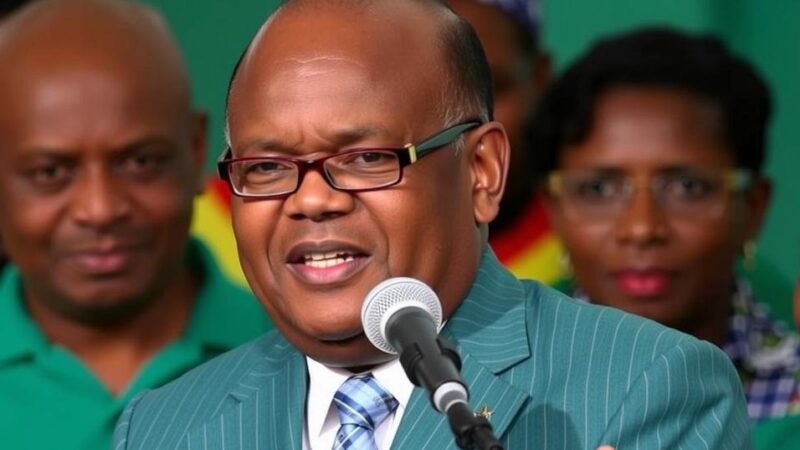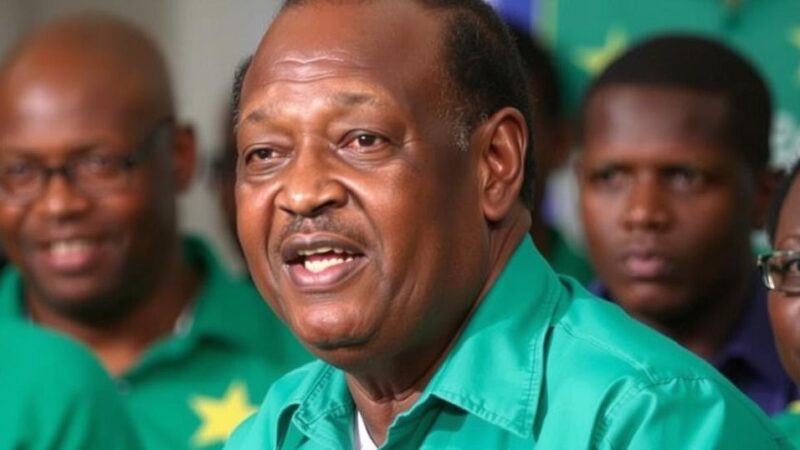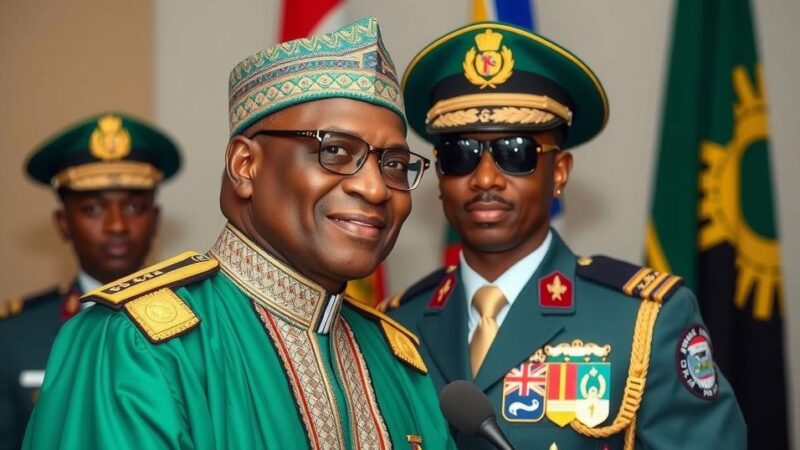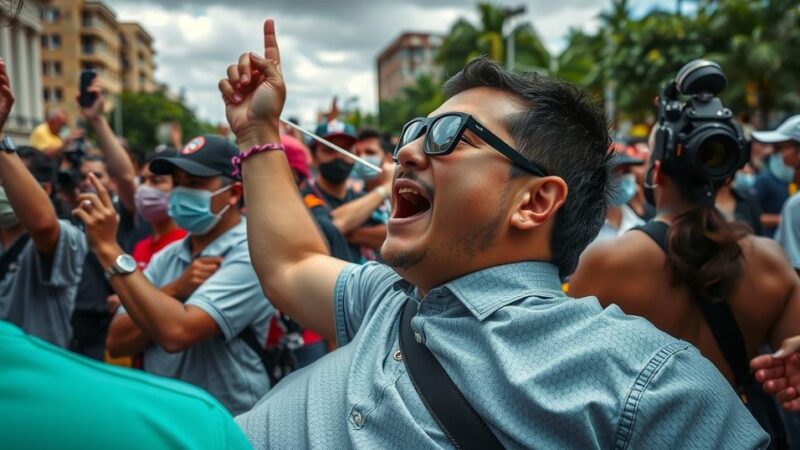The presidential election in Tunisia resulted in incumbent President Kais Saied securing 90.7 percent of the vote amidst low voter turnout of 28.8 percent, raising concerns over electoral integrity and democratic backsliding. Criticisms focus on the exclusion of opposition candidates and repression of dissent, with observers fearing Saied will interpret this mandate as a justification for increasing authoritarian measures.
The recent presidential election in Tunisia has concluded with preliminary results revealing a substantial victory for incumbent President Kais Saied, who reportedly secured 90.7 percent of the vote. However, this outcome is marred by an alarmingly low voter turnout of merely 28.8 percent, which highlights the deepening divisions within the nation. The election process has been under scrutiny due to judicial controversies, accusations of vote tampering, and the absence of significant opposition candidates, with many competitors either imprisoned or excluded from participation. On national television, President Saied proclaimed that his electoral success represents a “continuation of the revolution,” stating, “We will build and will cleanse the country of the corrupt, traitors and conspirators.” These remarks prompted concerns regarding the potential implications for civil liberties and governance, as protests have resumed against what many perceive as repressive measures to curtail free speech and diminish civil society. Human Rights Watch has issued warnings about Saied’s tactics to suppress dissent, emphasizing the need for legal oversight and the protection of democratic institutions. The election has drawn sharp criticism from rights organizations, which have labeled the vote as rigged due to Saied’s administration controlling the electoral process to eliminate potential challengers. Only three candidates were allowed to run for office despite the initial pool of seventeen being rejected under controversial circumstances. One of the approved candidates, Ayachi Zammel, is serving a prison sentence for electoral fraud while still participating in the race, further complicating the legitimacy of the election. The diviseness is corroborated by the views of political analysts, who suggest that the opposition remains fragmented, allowing Saied to consolidate power. Meddeb from the Carnegie Middle East Center noted, “Saied didn’t have to deal with that. He was able to mobilise his entire base.” The overall perception of Saied’s administration is that while he has supporters rallying behind his populist promises, the Tunisian economy continues to falter without substantial reform. Internationally, responses to Saied’s victory are anticipated to be muted, especially from European Union leaders who have provided substantial aid to Tunisia, primarily to manage migration issues. Political analysts believe that EU officials are likely to accept the election results as they prioritize preventing irregular migration over the commitment to democracy in Tunisia. As discussions continue regarding the implications of Saied’s victory, there is growing concern among observers that he may interpret the election outcome as a validation for further authoritarian practices. Hatem Nafti articulated this sentiment by stating, “Saied essentially campaigned on conspiracy theories. That’s all he had. No programme, nothing.” He foresees a continuation of oppression, anticipating further challenges to civil rights, and a regression in Tunisia’s democratic aspirations. In summary, while Kais Saied has achieved notable electoral success, the broader implications for Tunisia’s democratic integrity and civil rights remain grave. Observers warn that his governance could result in increased repression as he capitalizes on the election results to further entrench his authority.
This article discusses the implications of the recent presidential election in Tunisia, where incumbent President Kais Saied won decisively amidst a backdrop of low voter turnout and serious allegations of electoral malpractice. The context includes a crackdown on dissent, a fragmented opposition, and broader concerns about democratic backsliding in the nation following its 2011 revolution that initially promised greater freedoms. The article examines the potential consequences of Saied’s re-election on civil liberties and Tunisia’s political landscape, as well as the international response to the election outcomes designed to address migration from Tunisia to Europe.
In conclusion, the significant victory of President Kais Saied in the Tunisian presidential elections amidst allegations of repression and low public participation raises serious concerns about the state of democracy in Tunisia. The crackdown on opposition, the exclusion of credible challengers, and Saied’s own ominous rhetoric signify a worrying trajectory for civil society and democratic institutions in the country. As international observers await the potential repercussions of Saied’s governance, it remains crucial to monitor how these developments affect Tunisia’s commitment to democratic principles and human rights.
Original Source: www.aljazeera.com







